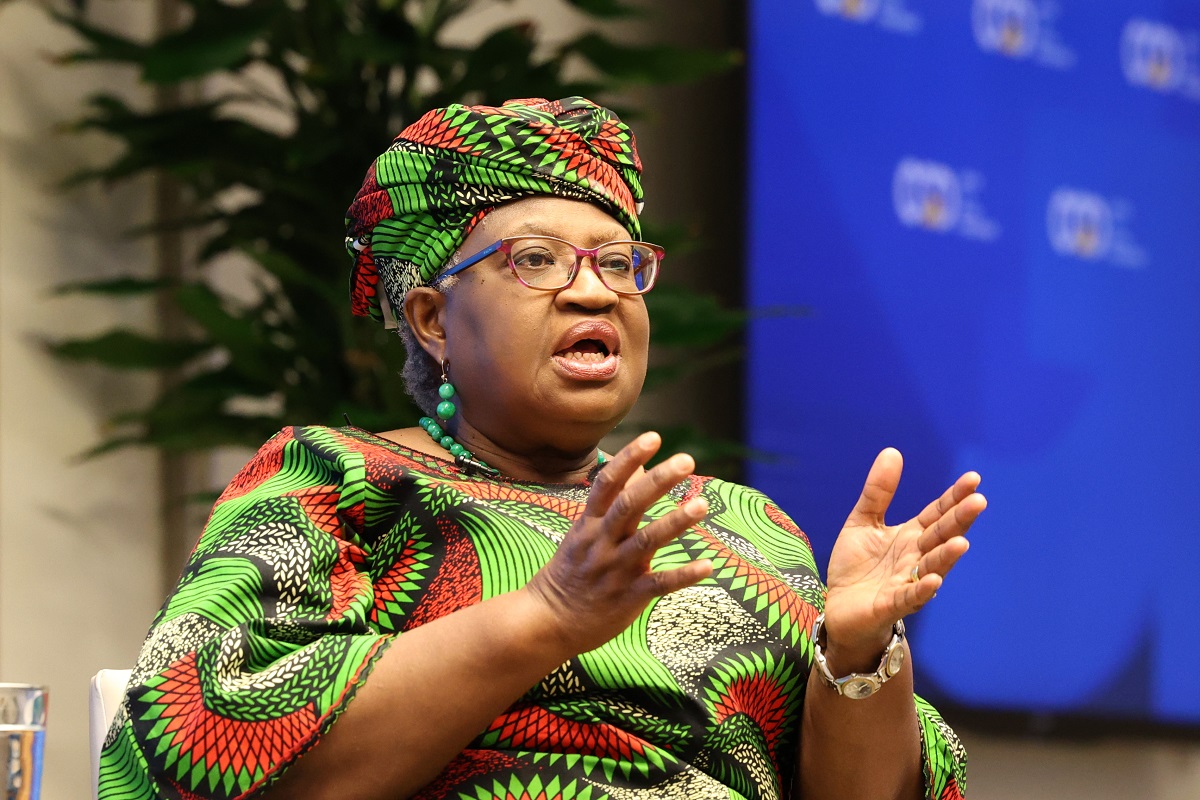Today's Washington Post featured a column from Rep. Jim Kolbe on the collapse of the Doha Development Round of International trade talks.
 "...Doha's greatest significance was as a tool against global poverty, pure and simple. It was driven by the idea that trade, in conjunction with responsible foreign aid, could lead to prosperity in the developing world. ...With Doha negotiations in the deep freeze, the United States needs to embrace an ambitious bilateral trade agenda. Of course, bilateral agreements are no substitute for multilateral ones; multilateral agreements propel the world toward economic openness faster. But without a multilateral round on the horizon, the United States cannot afford to remain idle."
"...Doha's greatest significance was as a tool against global poverty, pure and simple. It was driven by the idea that trade, in conjunction with responsible foreign aid, could lead to prosperity in the developing world. ...With Doha negotiations in the deep freeze, the United States needs to embrace an ambitious bilateral trade agenda. Of course, bilateral agreements are no substitute for multilateral ones; multilateral agreements propel the world toward economic openness faster. But without a multilateral round on the horizon, the United States cannot afford to remain idle."
Jim Kolbe was awarded this year's
Commitment to Development Award by the Center and
Foreign Policy Magazine in recognition of his able and courageous leadership on a range of aid and trade issues of importance to developing countries. He is also right to flag the potential consequences for developing countries from this summer's collapse of the Doha Round of global trade negotiations, and the need to reform U.S. agricultural policies, regardless of what happens in the round.But is the Congressman correct in arguing that an aggressive bilateral agenda is an acceptable second-best? The United States has negotiated preferential trade agreements with 18 countries, half of them falling in either the high-income or upper middle-income categories. Only one, Nicaragua, is a low-income country. In his op-ed, Congressman Kolbe goes on to endorse conclusion of the ongoing negotiations with Korea, a relatively rich country, and Brazil, a large emerging market.From the perspective of developing countries, there are at least two potential problems with a bilateral trade agenda. The first and most obvious is that these agreements are inherently discriminatory, benefiting member countries at the expense of non-members, with the poorest countries likely to be among those excluded. Second, smaller developing countries have more leverage acting as a group in a multilateral negotiation than one-on-one with a large, powerful country such as the United States. As a result of this asymmetric bargaining power, developing countries have had to accept provisions on intellectual property, capital controls, and investment in FTAs with the United States that are beyond what the World Trade Organization (WTO) requires and that may not be what best promotes development and broadly-shared prosperity. The Congressman is almost surely correct that bilateral negotiations are likely to fill the void if the Doha Round is not restarted later this year. It is less clear that this is a development to be applauded.
CGD blog posts reflect the views of the authors, drawing on prior research and experience in their areas of expertise.
CGD is a nonpartisan, independent organization and does not take institutional positions.


 "...Doha's greatest significance was as a tool against global poverty, pure and simple. It was driven by the idea that trade, in conjunction with responsible foreign aid, could lead to prosperity in the developing world. ...With Doha negotiations in the deep freeze, the United States needs to embrace an ambitious bilateral trade agenda. Of course, bilateral agreements are no substitute for multilateral ones; multilateral agreements propel the world toward economic openness faster. But without a multilateral round on the horizon, the United States cannot afford to remain idle."
"...Doha's greatest significance was as a tool against global poverty, pure and simple. It was driven by the idea that trade, in conjunction with responsible foreign aid, could lead to prosperity in the developing world. ...With Doha negotiations in the deep freeze, the United States needs to embrace an ambitious bilateral trade agenda. Of course, bilateral agreements are no substitute for multilateral ones; multilateral agreements propel the world toward economic openness faster. But without a multilateral round on the horizon, the United States cannot afford to remain idle."


